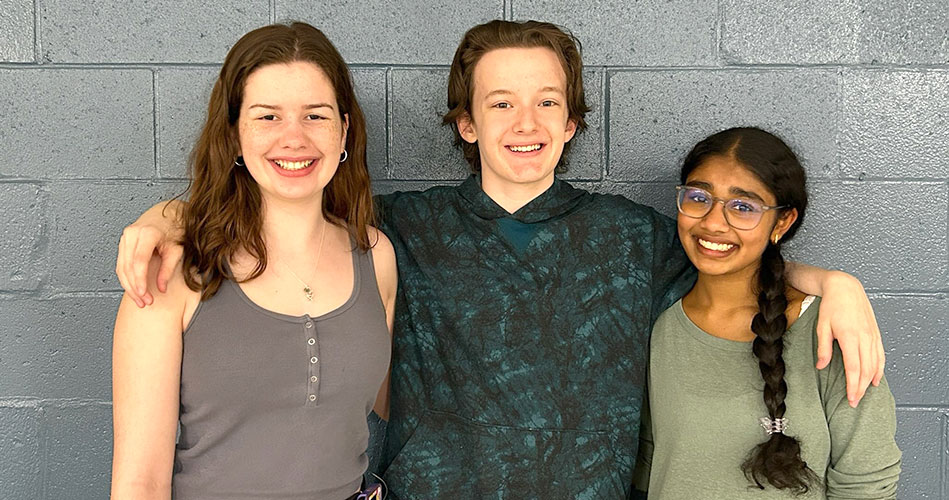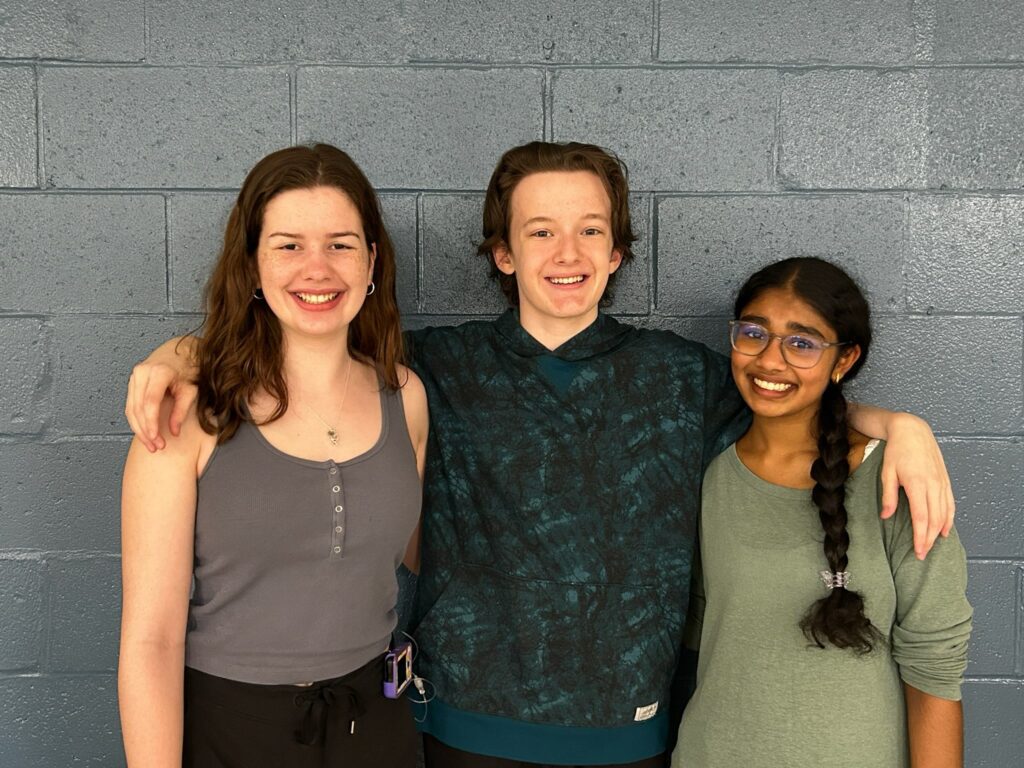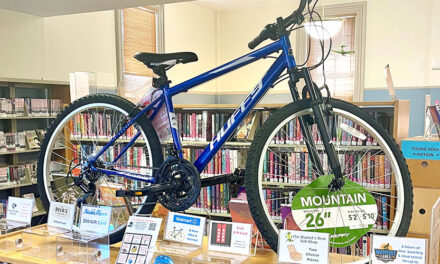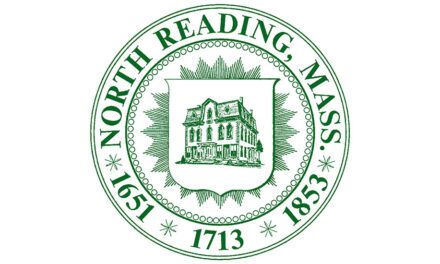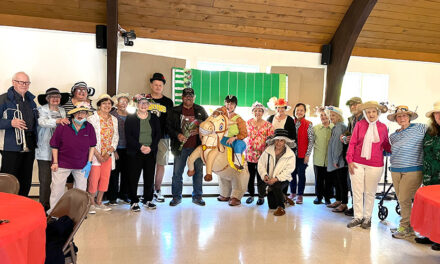By SHAY WAINWRIGHT
LYNNFIELD — In the spring, Lynnfield High School and Lynnfield Middle School participate in the Massachusetts Educational Theater Guild’s (METG) Drama Fest. At the high school level, it’s a competition, at the middle school level, an exhibition, and in both cases, an opportunity to share a day of theater with students from schools all over the state.
This year, both Lynnfield schools chose to present student-written and student-directed plays. The high school performed “Flicker,” written and directed by Isabelle Moschella (12th grade) and Siri Tudi (10th grade), under the supervision of Joey Puleo, and the middle school performed “Thesmophoria,” written and directed by Patrick Malone (8th grade), under my supervision.
Puleo said he was “intrigued and excited about the idea” when Moschella first approached him about it in the spring of 2023, and agreed as long as she and Tudi could meet all the deadlines necessary. Malone mentioned to me that he was writing a play in the fall, and I was immediately drawn to the idea of doing something so individual. Once the script was complete, we staged a read-through with the other middle school actors who were familiar with Drama Fest, and when it was clear everyone was enthusiastic about the project, we agreed to perform the show.
For Moschella, “the hardest part of writing … was coming up with what story we wanted to tell. In all of my work, I aim to convey the beauty in our differences, while also highlighting the hidden bonds we often forget we share. How was I supposed to show my peers something that I barely understood myself?” In Tudi’s view, “the biggest challenge when we were writing was during the final cuts, we really needed to figure out which elements were most important to the overall message and plot of the show; as we had to fit so much information in the timeframe of 40 minutes. There were many lines and jokes which we really loved, but we had to cut because they did not add to the overall message of the play.” Malone said his “biggest concern when we finally decided to do it was what the other actors thought of the script. I didn’t want them to perform a play they thought was bad, or cringey, and I appreciated the criticisms some of them gave me.”
Once the scripts were ready, the directing process began. All three students were familiar with what goes into a play, having appeared in several during their Lynnfield careers, but none had ever been fully involved in all the various aspects of directing before. Puleo said, “Izzy and Siri exceeded my expectations. They were so professional, and I was impressed at the way they were able to lead their peers. They had such a compassionate and honest approach to their directing that they immediately gained the respect of all cast and crew members.”
I had confidence in Malone from the start. He had always shown an interest in understanding everything that goes into putting on a show, and I approached the process with the intention of having him involve himself with every part of the production, so that he could learn as much as possible from the experience. In the process, I learned a great deal myself. As he put it, “We were both helping each other grow in the director position.”
In addition to writing and directing, Tudi and Malone each composed original music for their productions. Malone took on the task based on a suggestion I made to him, and said it was “a lot of trial and error.” Tudi was excited to find a way to let the music and theatre departments work together, and she appreciated how enthusiastic the band students were about playing the original music.
Puleo called the production of “Flicker” “the most rewarding experience,” and says he would love to continue working with student directors, and would be “open to students writing another show” at some point.
I found “Thesmophoria” a tremendous learning opportunity for everyone involved, and would welcome the chance to do another student-written script, as well as to work with more student directors. It’s extraordinary to watch someone realize what they are capable of, and to see their horizons expand.
Malone said the “most rewarding part was probably seeing the full show come together” and that he thinks “everyone should write a script.” For Tudi, “the most rewarding part of writing this script was seeing the show be brought to life by our cast. When you are writing these characters you tend to imagine them portrayed in a specific way, but seeing the different interpretations made of each character was such an amazing thing to see. It is what separates just having an idea from actually writing it and carrying it out. When an idea is in your mind, you can only think of it in one way, but when you share your art with others, their interpretations will also inspire you and make you see new possibilities.” Moschella said her “favorite part of this experience was being able to see people I’ve known for years, people I’ve grown up with, who I’ve spent long nights with, early mornings with, tears and laughs and all the feelings with, I got to see them take these pieces of myself and make them their own. And through this process I was reminded of the message I wanted our play to share. Real, true friends will share those burdens you feel, theyll take them and reshape them, then return them to you in a manner that makes you question whether they were ever really flaws at all.”

